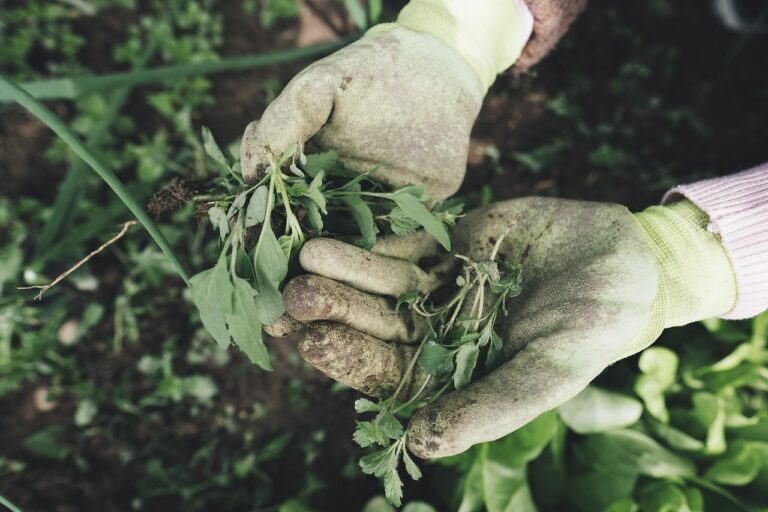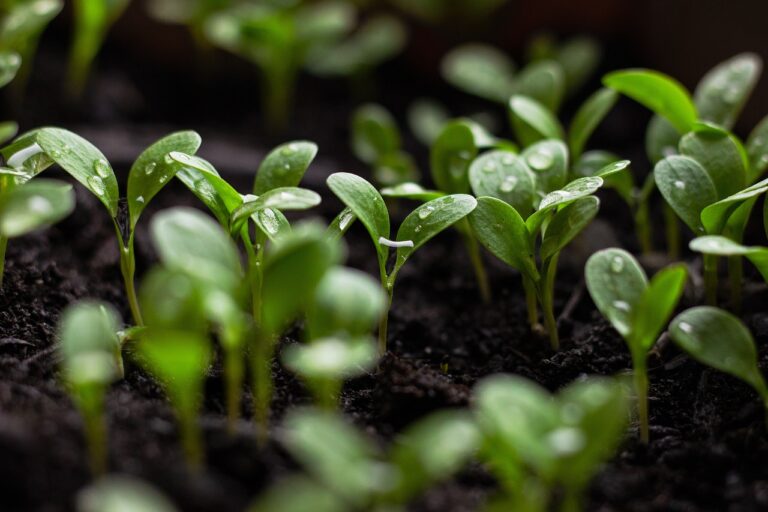How to Deal with Common Garden Pests: Effective and Eco-Friendly Strategies

Garden pests can be a significant challenge, but with the right strategies, you can manage them effectively without resorting to harsh chemicals. An integrated pest management (IPM) approach, which combines prevention, monitoring, and natural control methods, is both eco-friendly and effective. Here are strategies to deal with common garden pests:
1. Prevention and Monitoring
Preventing pest problems before they start and regularly monitoring your garden can save time and effort in the long run.
- Healthy Plants: Start with healthy plants, as strong plants are better able to resist pests and diseases. Avoid planting in areas where pests are known to be problematic.
- Crop Rotation: Rotate crops yearly to prevent pests that overwinter in the soil from attacking the same plant family each year.
- Companion Planting: Use companion planting to deter pests. For example, planting marigolds with tomatoes can help repel nematodes and other harmful insects.
- Regular Inspection: Regularly inspect plants for signs of pests or damage, such as holes in leaves, discolored foliage, or the presence of insects.
2. Natural Predators and Beneficial Insects
Encouraging natural predators and beneficial insects in your garden can help keep pest populations under control.
- Ladybugs: Ladybugs are voracious eaters of aphids, mites, and other soft-bodied insects. Release ladybugs in your garden to control these pests naturally.
- Lacewings: Lacewings feed on aphids, caterpillars, and other garden pests. Attract them with plants like dill, fennel, and yarrow.
- Predatory Wasps: These wasps prey on caterpillars and other insects. Planting flowers such as Queen Anne’s lace, dill, and parsley can attract them to your garden.
- Birds: Attracting birds to your garden can help control insect populations. Install bird feeders, bird baths, and nesting boxes to encourage bird activity.
3. Organic and Natural Pesticides
When pests become a problem, organic and natural pesticides can be used to control them without harming beneficial insects or the environment.
- Neem Oil: Neem oil is an organic pesticide that works against a variety of pests, including aphids, mites, and whiteflies. It also has antifungal properties.
- Insecticidal Soap: Insecticidal soap can be used to control soft-bodied insects like aphids, mealybugs, and spider mites. It works by disrupting their cell membranes.
- Diatomaceous Earth: Diatomaceous earth is a natural powder that kills insects by dehydrating them. It’s effective against ants, beetles, and other crawling insects.
- Bacillus thuringiensis (Bt): Bt is a natural bacterium that targets caterpillars and other larvae. It is safe for humans, pets, and beneficial insects.
- Homemade Remedies: Homemade remedies such as garlic spray, chili pepper spray, and vinegar solutions can help repel insects and protect plants.
4. Physical Barriers and Traps
Using physical barriers and traps can effectively reduce pest populations and protect your plants.
- Row Covers: Floating row covers can protect plants from insects without the need for chemicals. They are especially useful for protecting seedlings and young plants.
- Netting: Use netting to protect fruiting plants like berries and cherries from birds and other larger pests.
- Copper Tape: Placing copper tape around pots or garden beds can deter slugs and snails, as they don’t like to cross copper.
- Sticky Traps: Sticky traps can be used to capture flying insects such as whiteflies, aphids, and fungus gnats.
- Beer Traps: For slugs and snails, fill shallow containers with beer and place them in the garden. The pests are attracted to the beer and will drown in the traps.
5. Cultural Practices
Adopting good cultural practices can help reduce pest problems and support overall plant health.
- Sanitation: Keep the garden clean by removing dead plants, fallen leaves, and debris, which can harbor pests and disease.
- Proper Watering: Water plants early in the day to allow foliage to dry before nightfall, reducing the risk of fungal diseases. Avoid overwatering, which can attract pests like fungus gnats.
- Mulching: Use mulch to suppress weeds, retain soil moisture, and create an unfavorable environment for certain pests.
- Proper Plant Spacing: Space plants properly to ensure good air circulation, which can reduce the risk of fungal diseases and discourage pests.
Common Garden Pests and Specific Control Methods
Here are some common garden pests and specific methods to control them:
- Aphids: Spray plants with a strong stream of water to knock off aphids. Introduce ladybugs and lacewings to prey on aphids. Use insecticidal soap or neem oil as needed.
- Caterpillars: Hand-pick caterpillars off plants. Use Bt to target caterpillars specifically. Attract predatory wasps with flowering plants.
- Slugs and Snails: Use beer traps or copper tape to deter slugs and snails. Hand-pick them early in the morning or late in the evening.
- Japanese Beetles: Hand-pick beetles and drop them into soapy water. Use neem oil or introduce beneficial nematodes to target their larvae in the soil.
- Whiteflies: Use yellow sticky traps to capture whiteflies. Spray with insecticidal soap or neem oil. Encourage natural predators like ladybugs and lacewings.
- Spider Mites: Spray the undersides of leaves with water to reduce spider mite populations. Introduce predatory mites or use insecticidal soap.
In conclusion, dealing with common garden pests involves preventing and monitoring pest problems, encouraging natural predators, using organic and natural pesticides, employing physical barriers and traps, and adopting good cultural practices. By integrating these strategies, you can effectively manage pests while maintaining a healthy and sustainable garden. Happy gardening!






